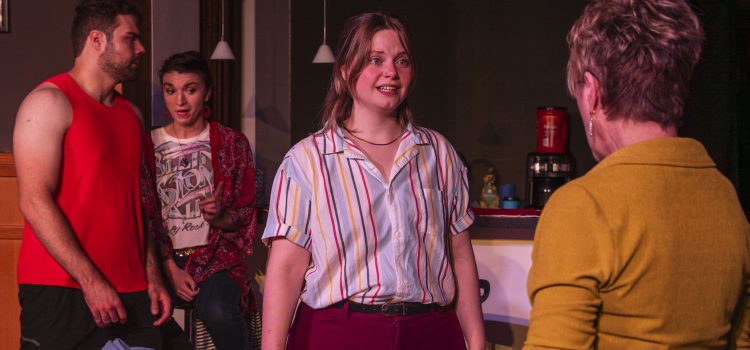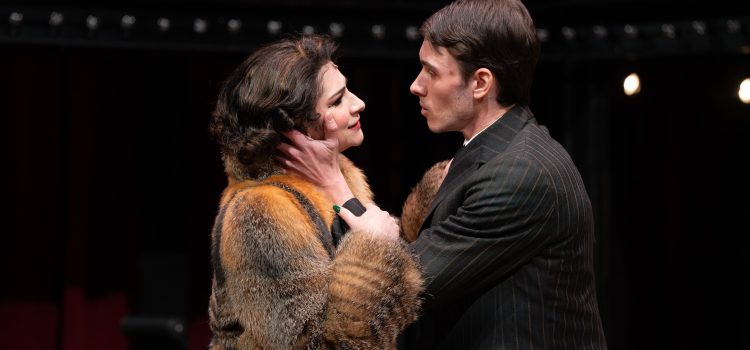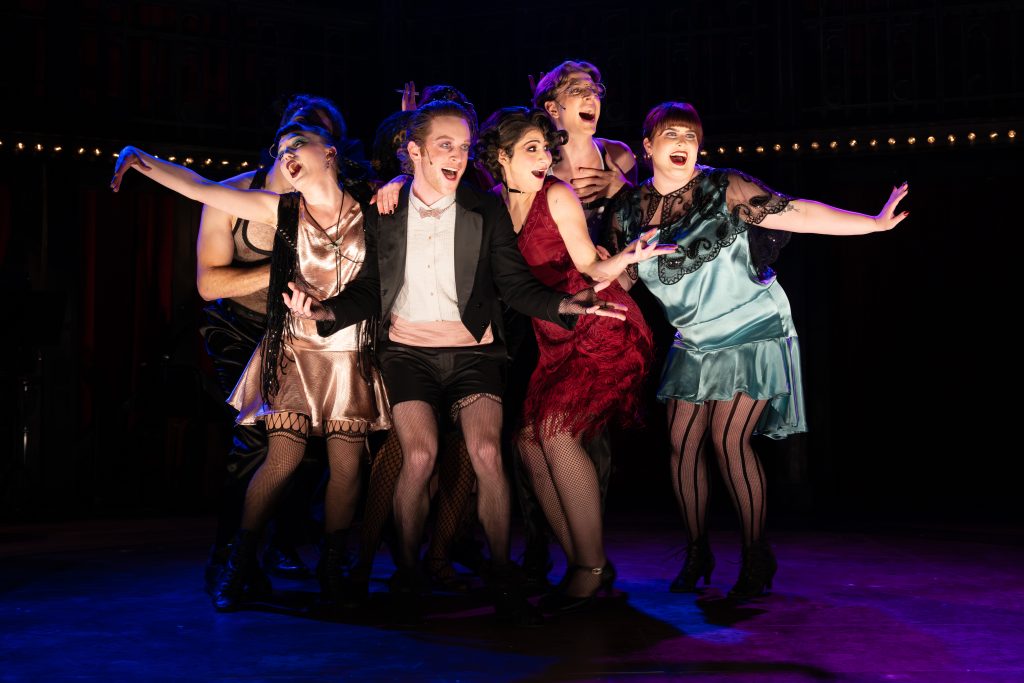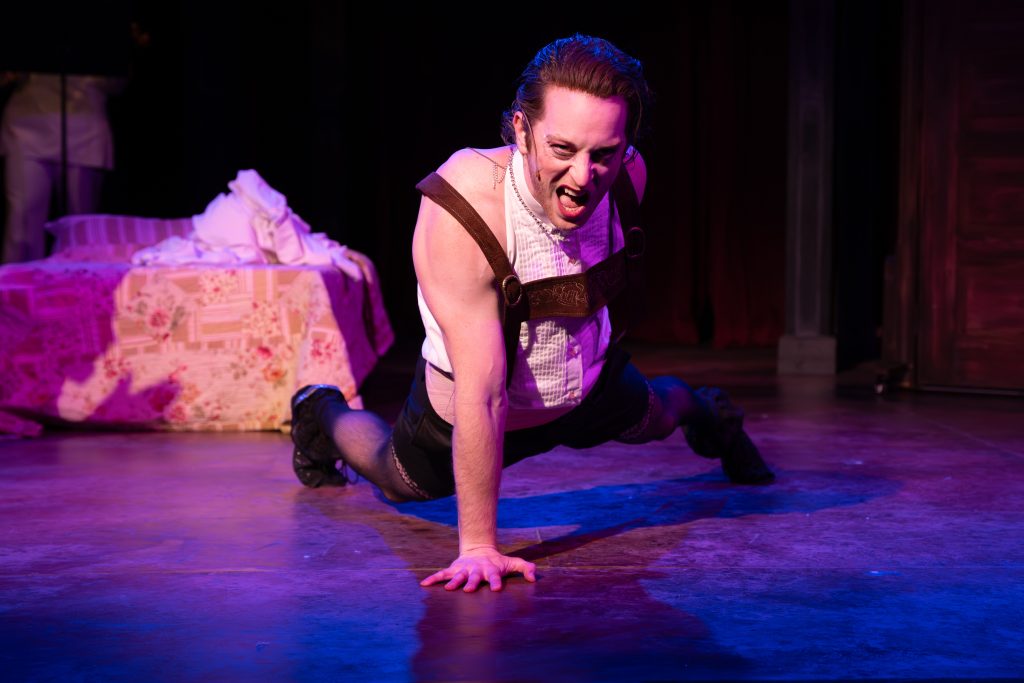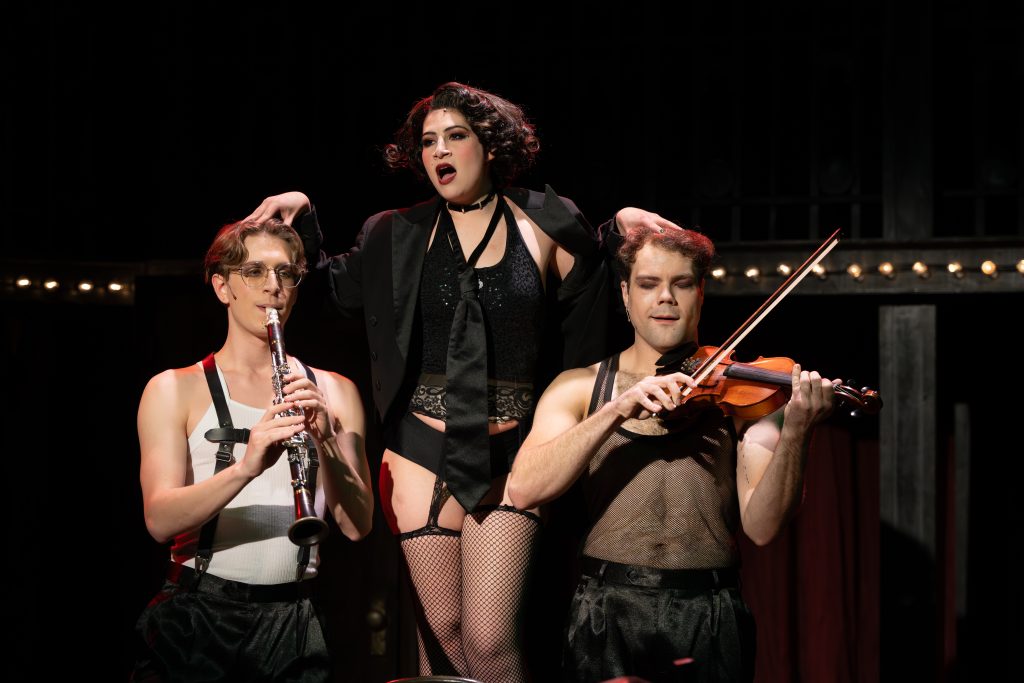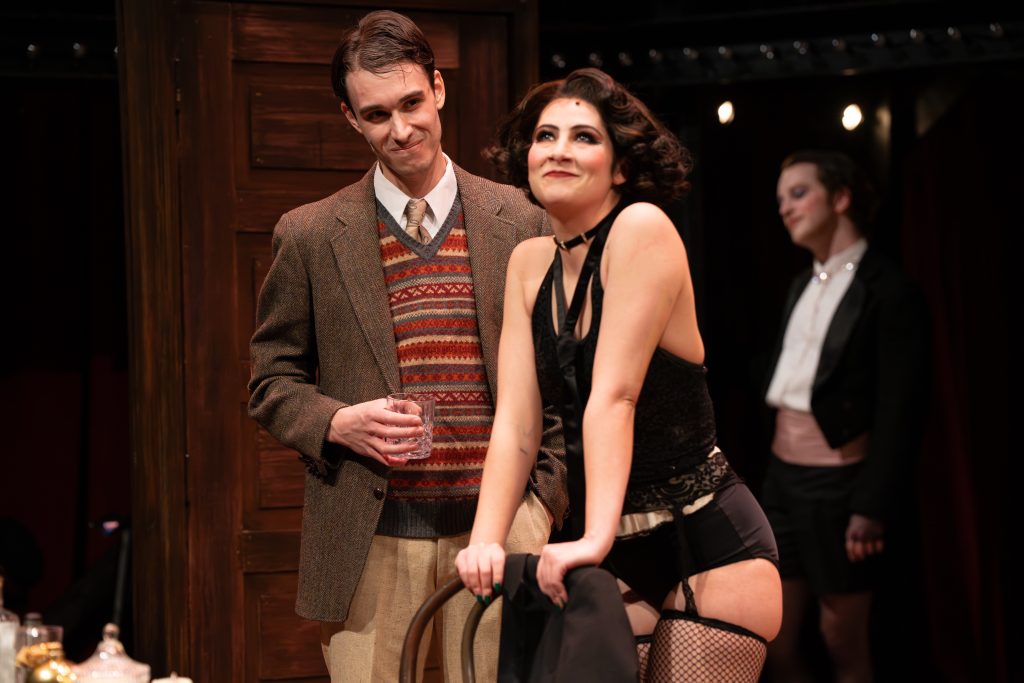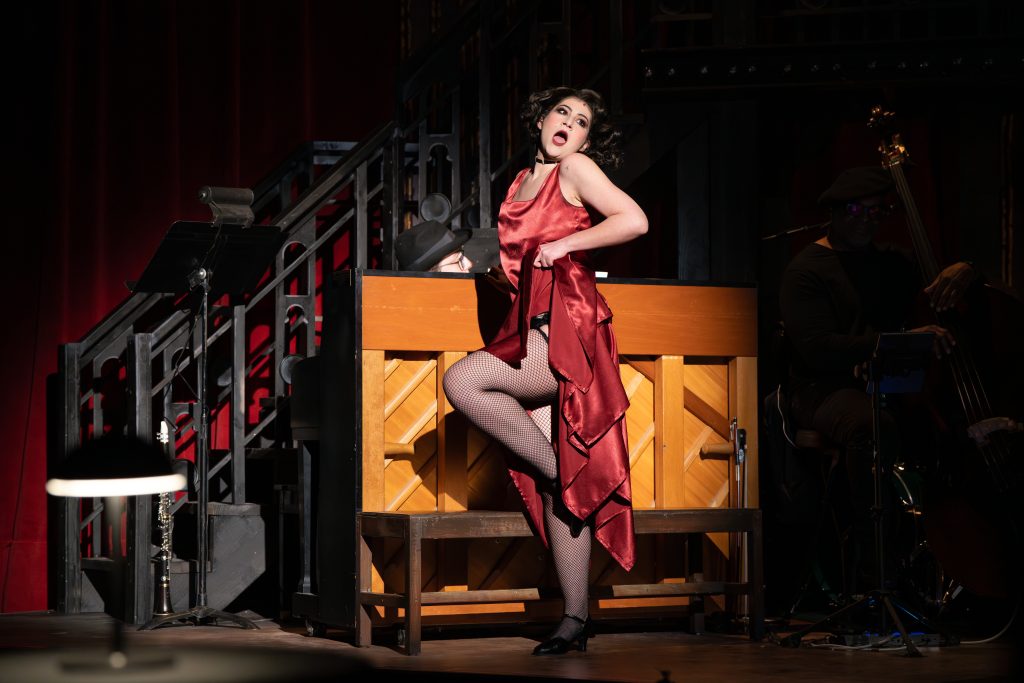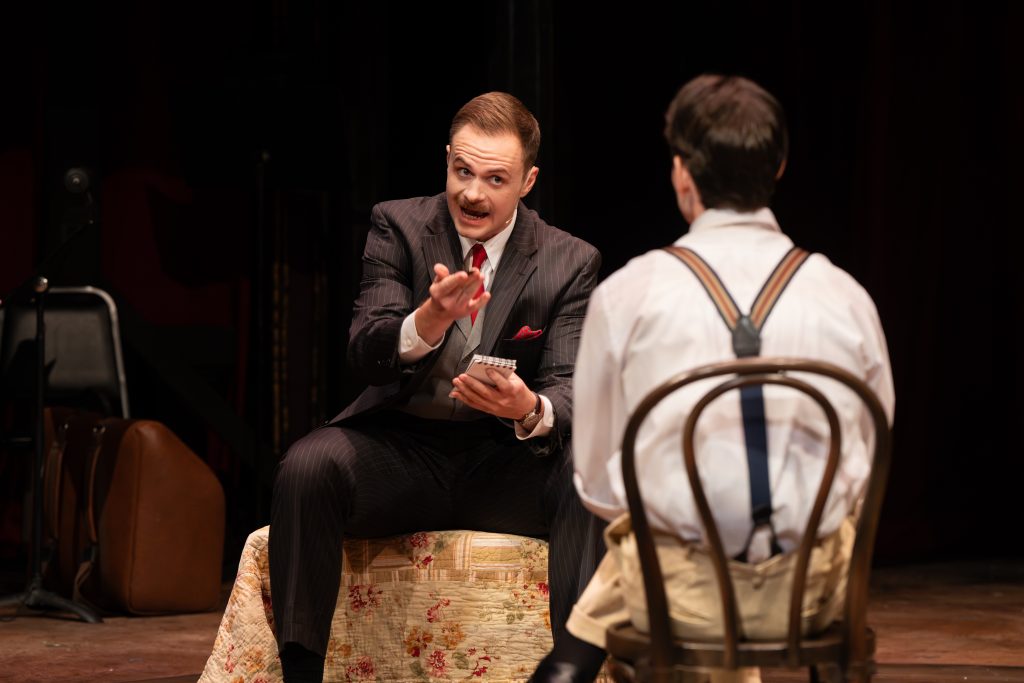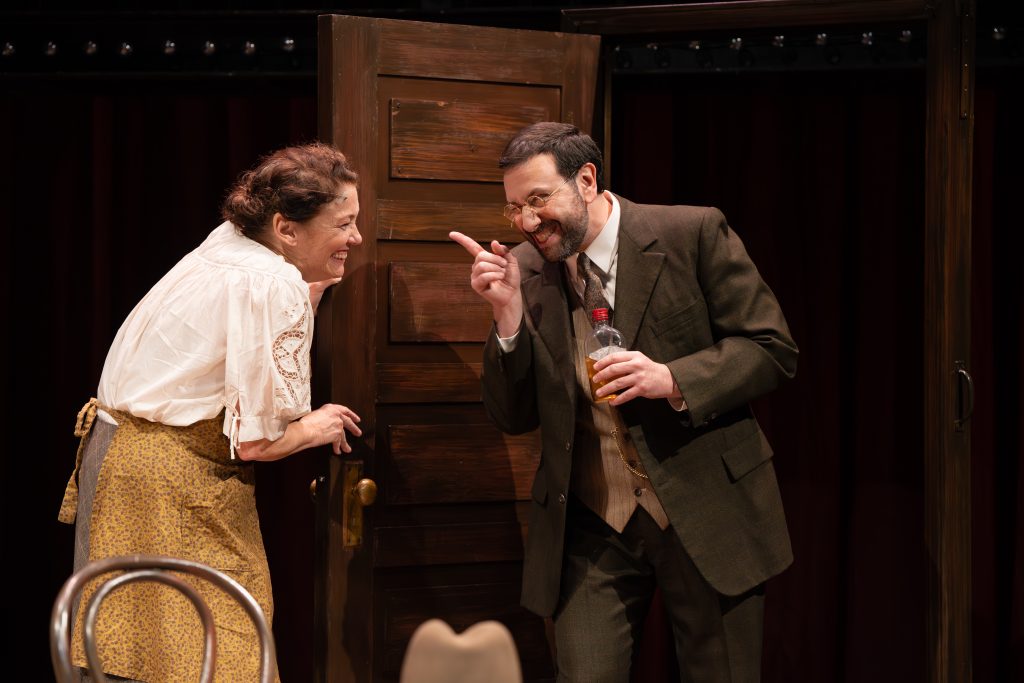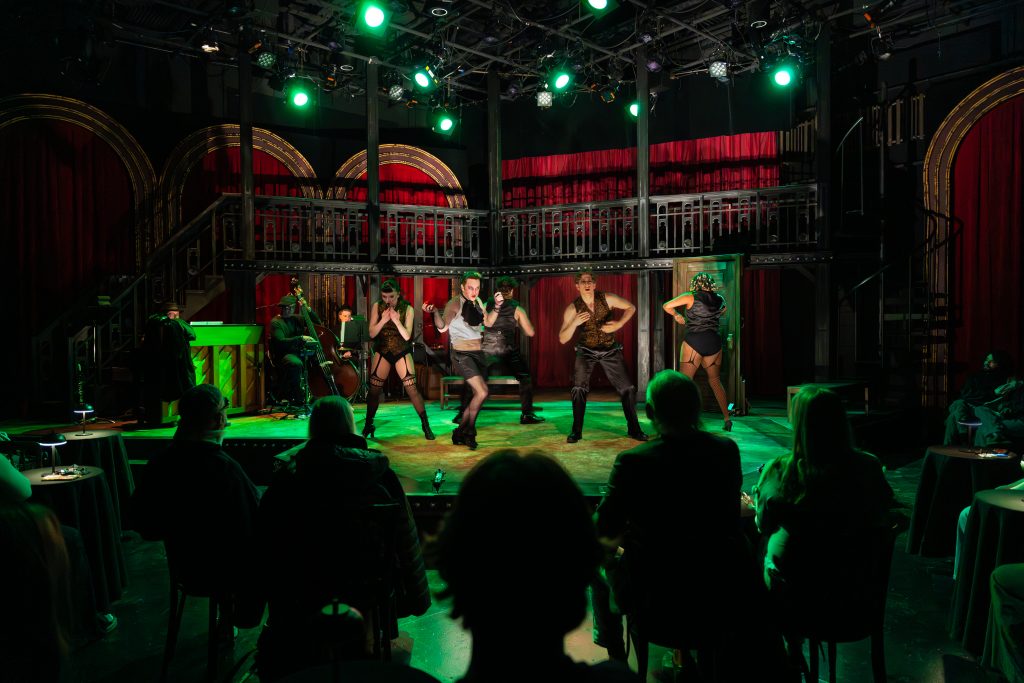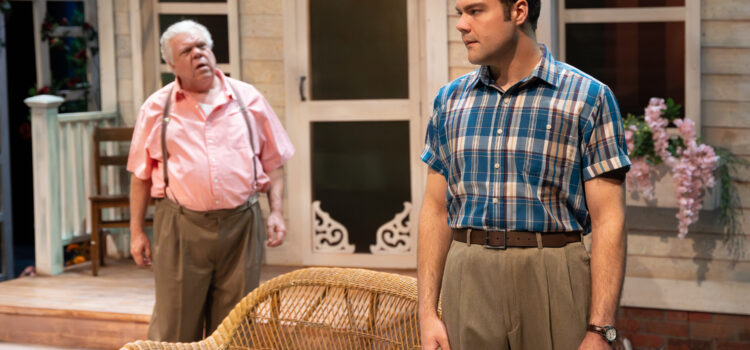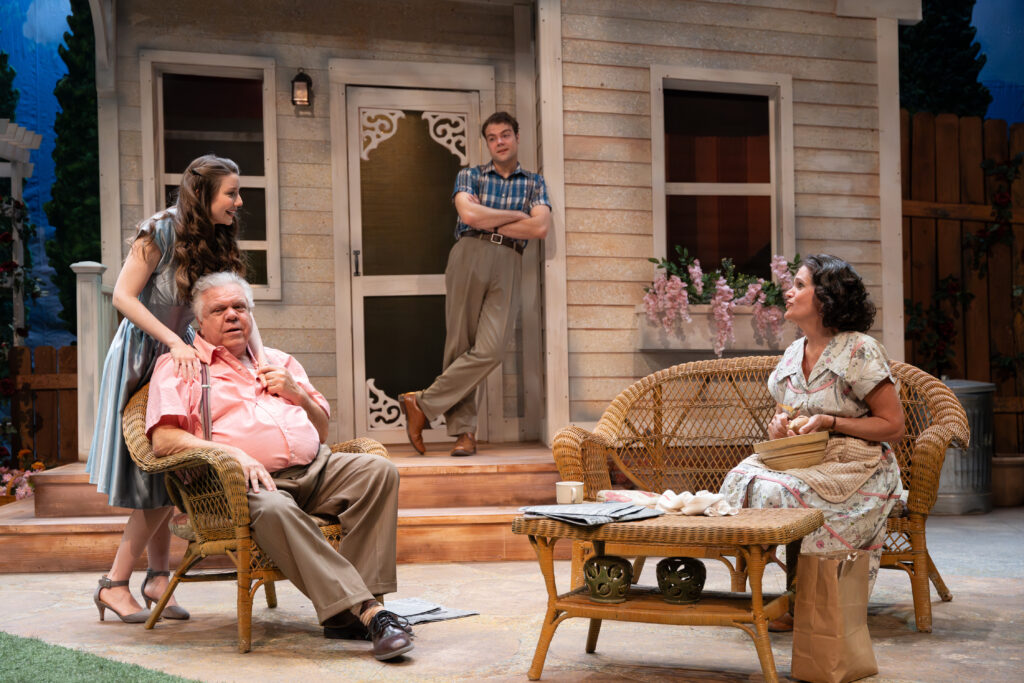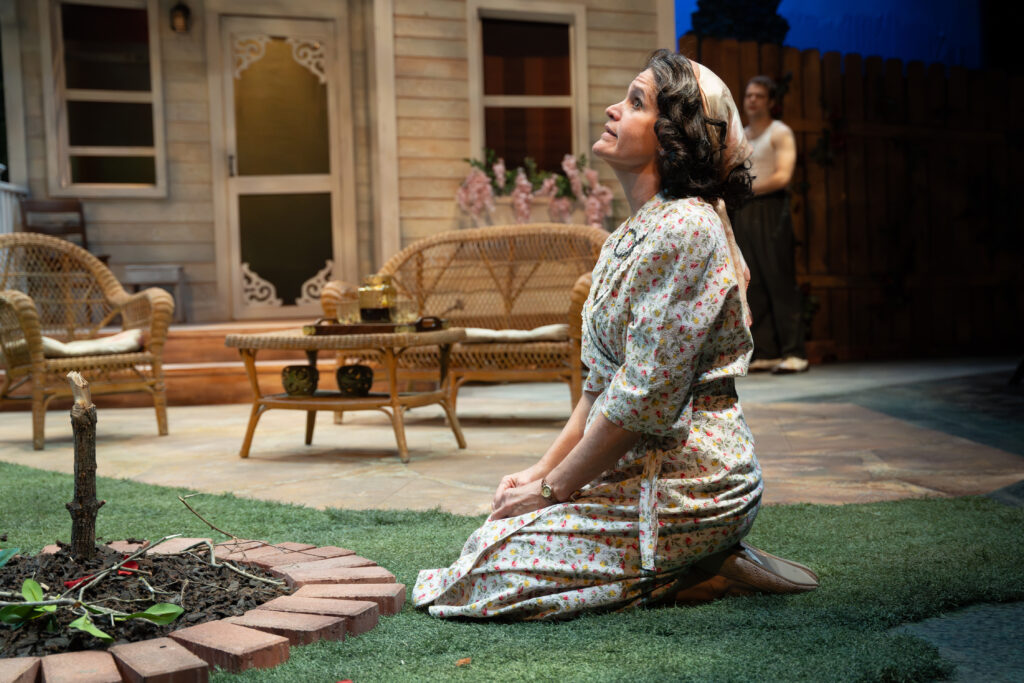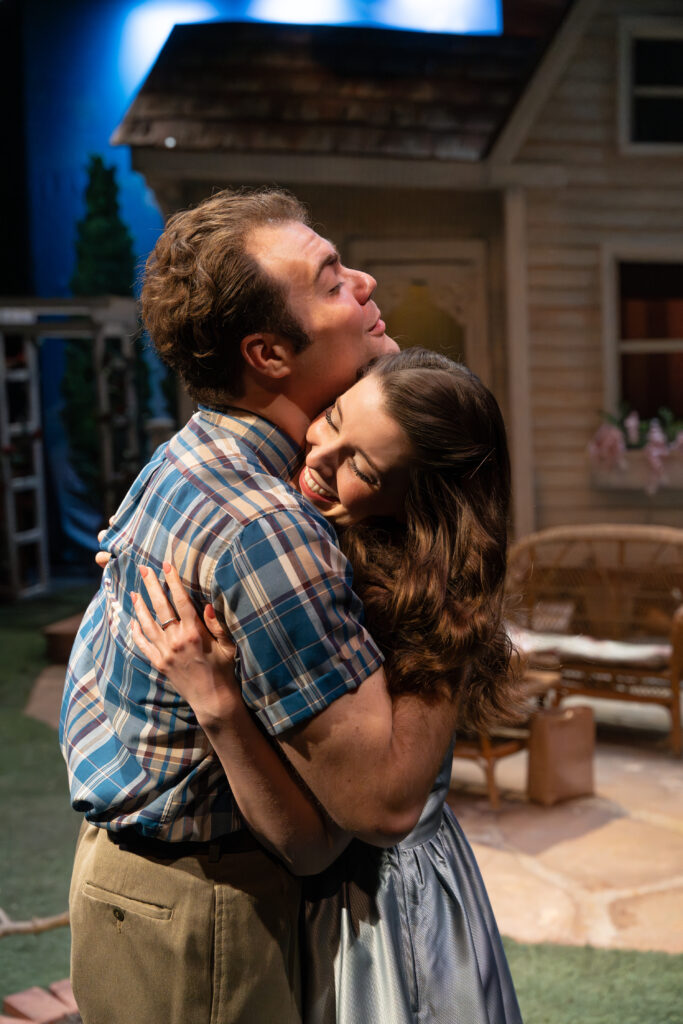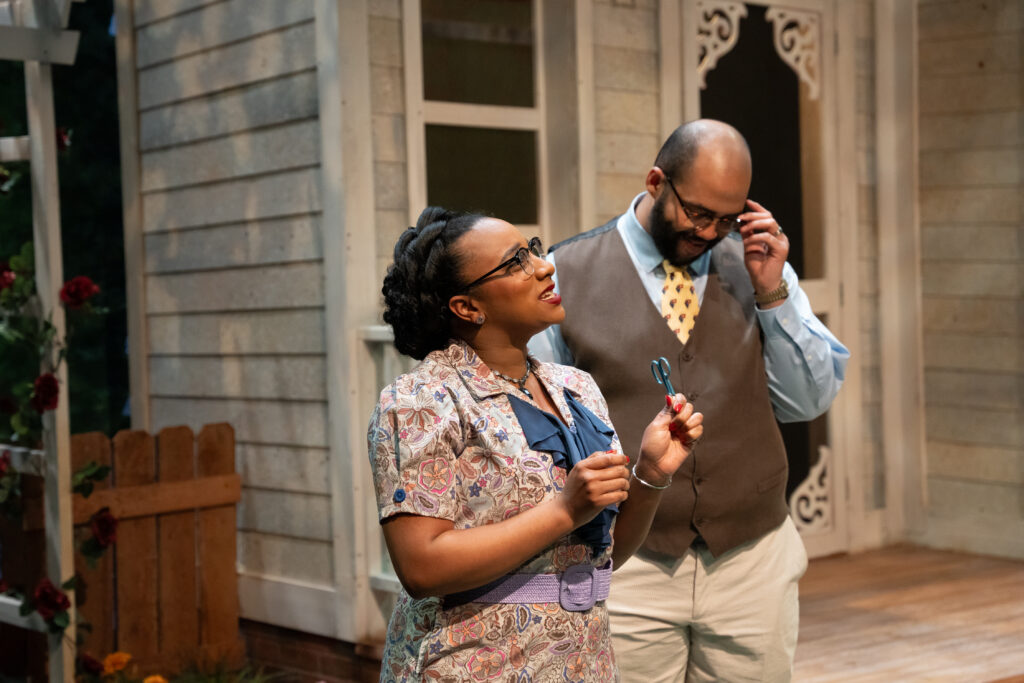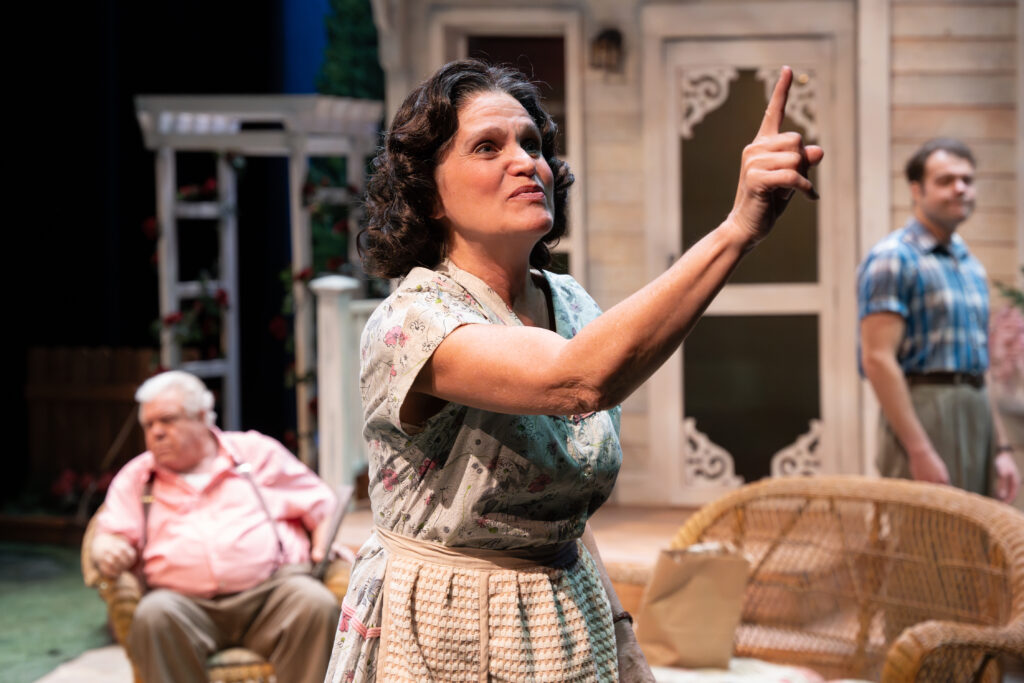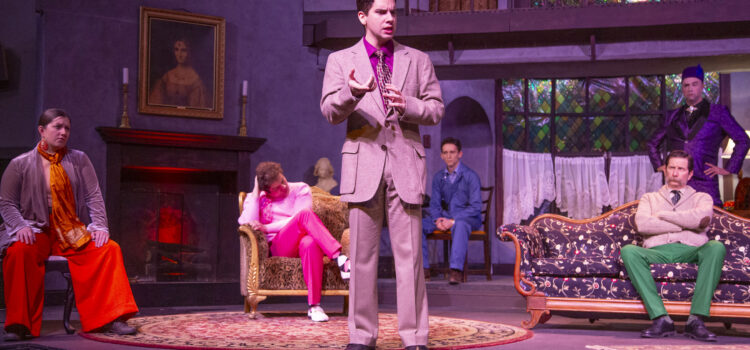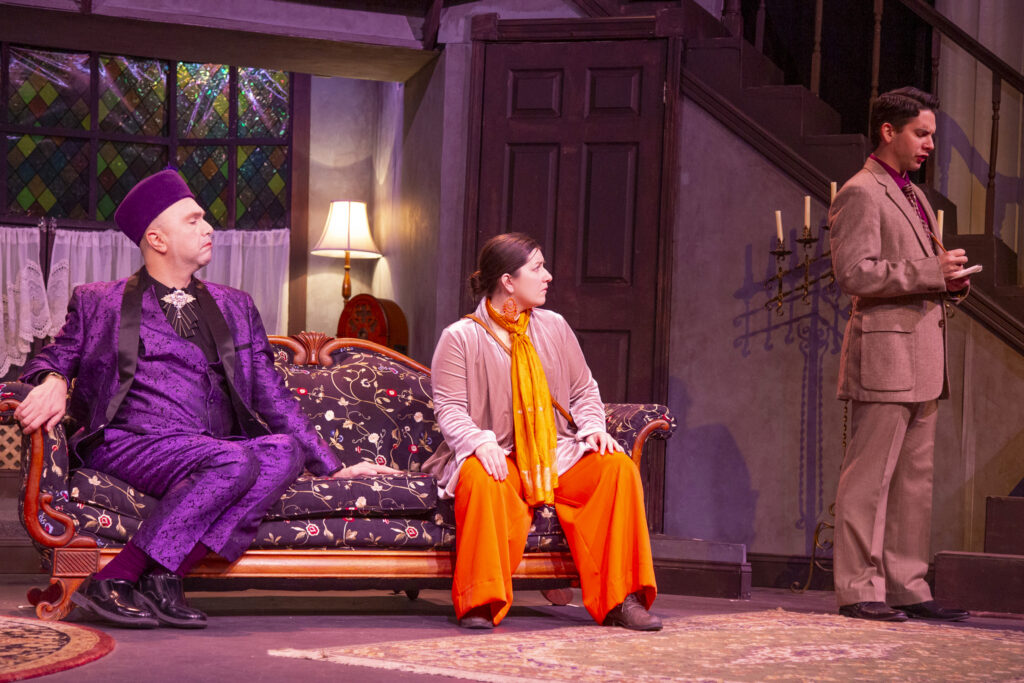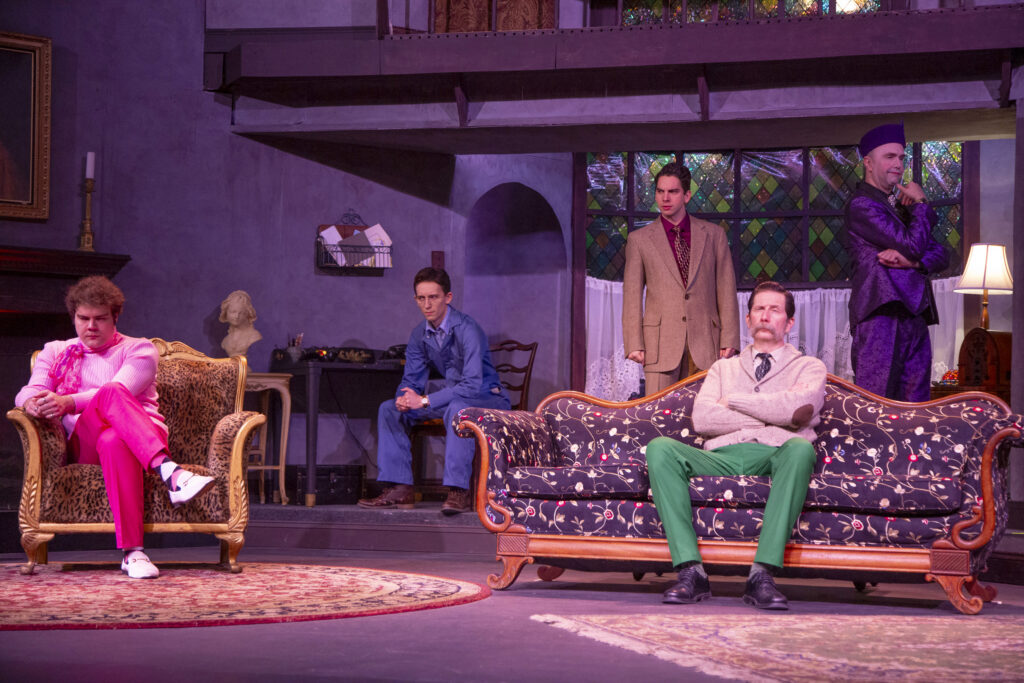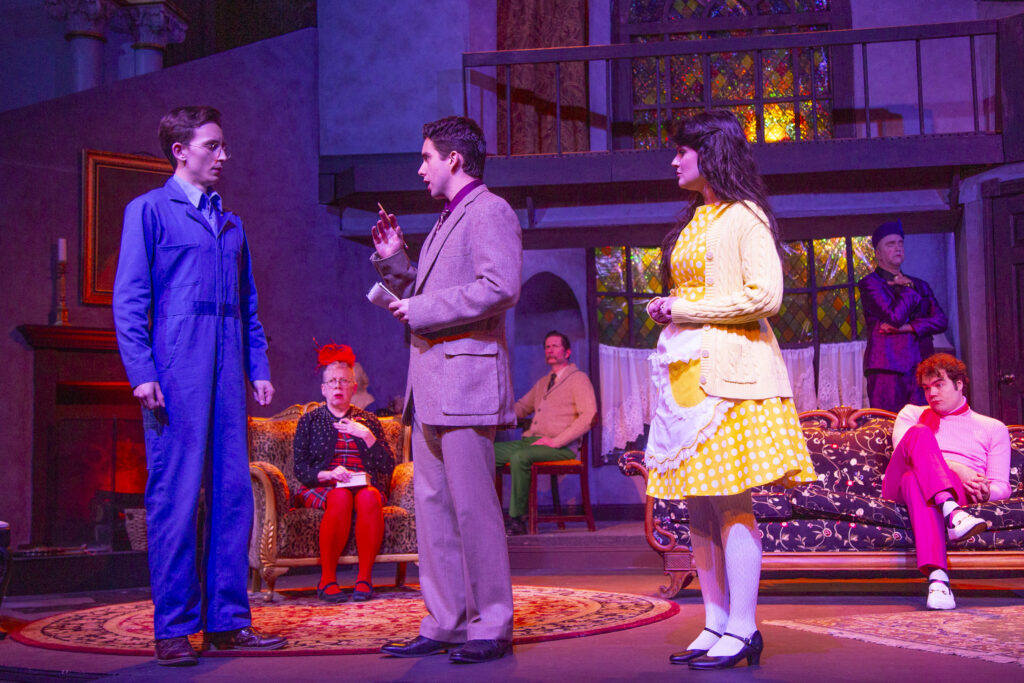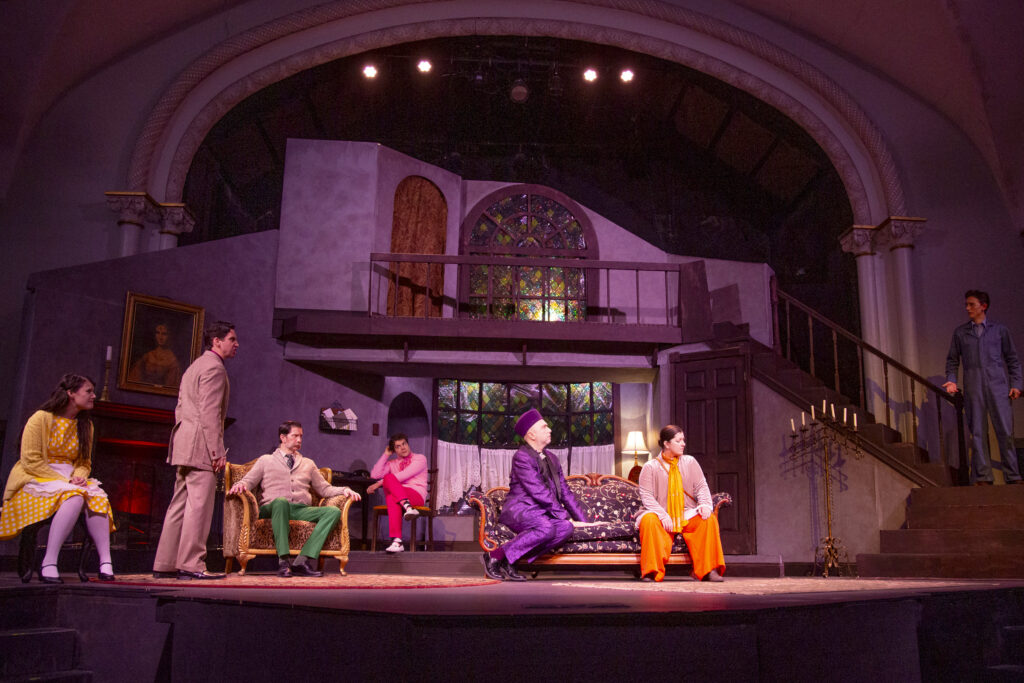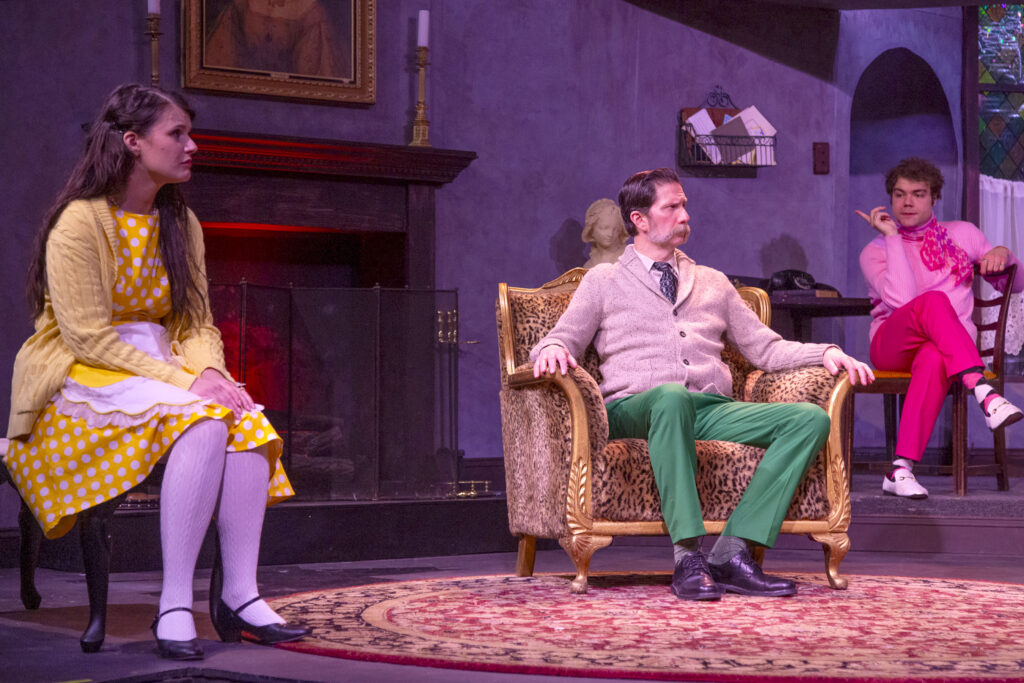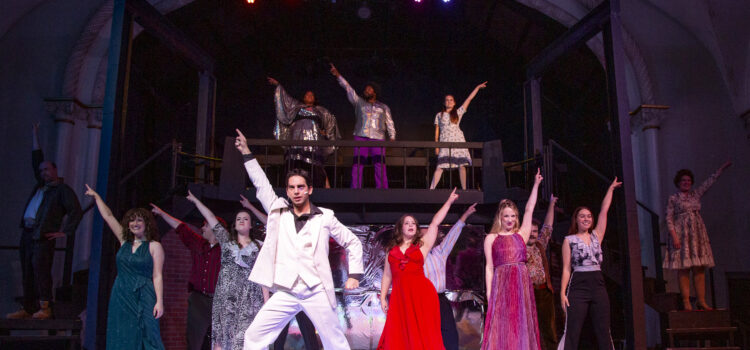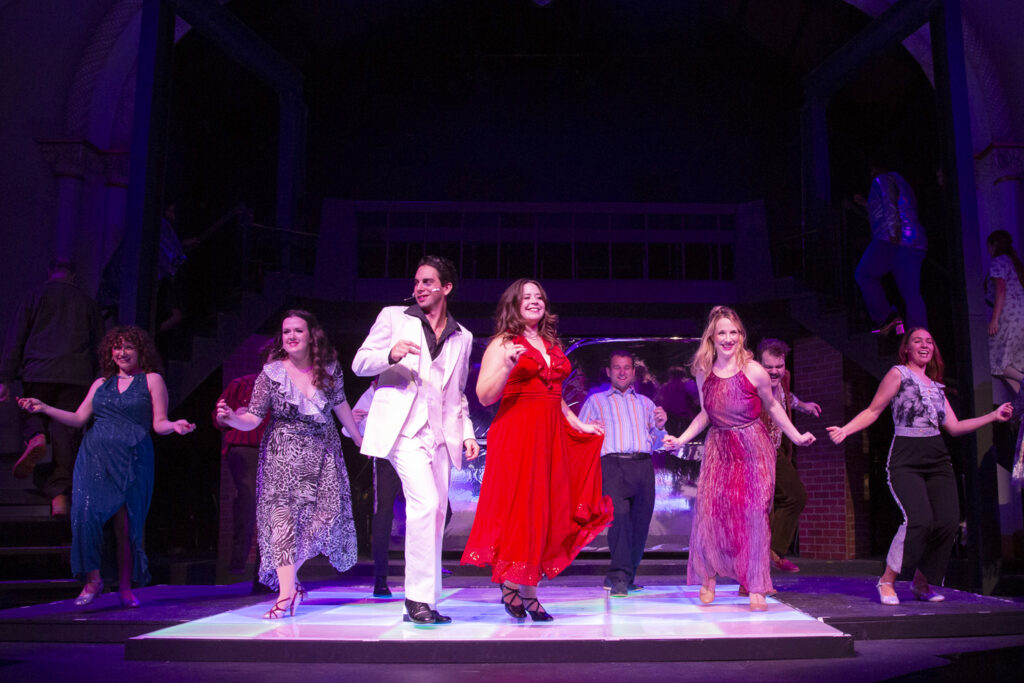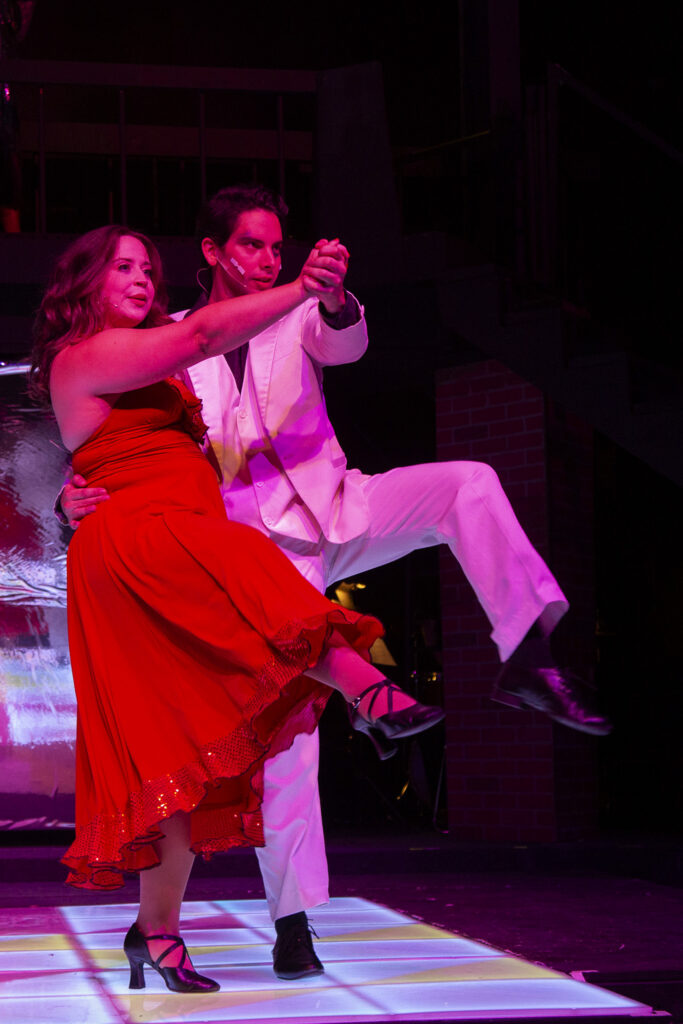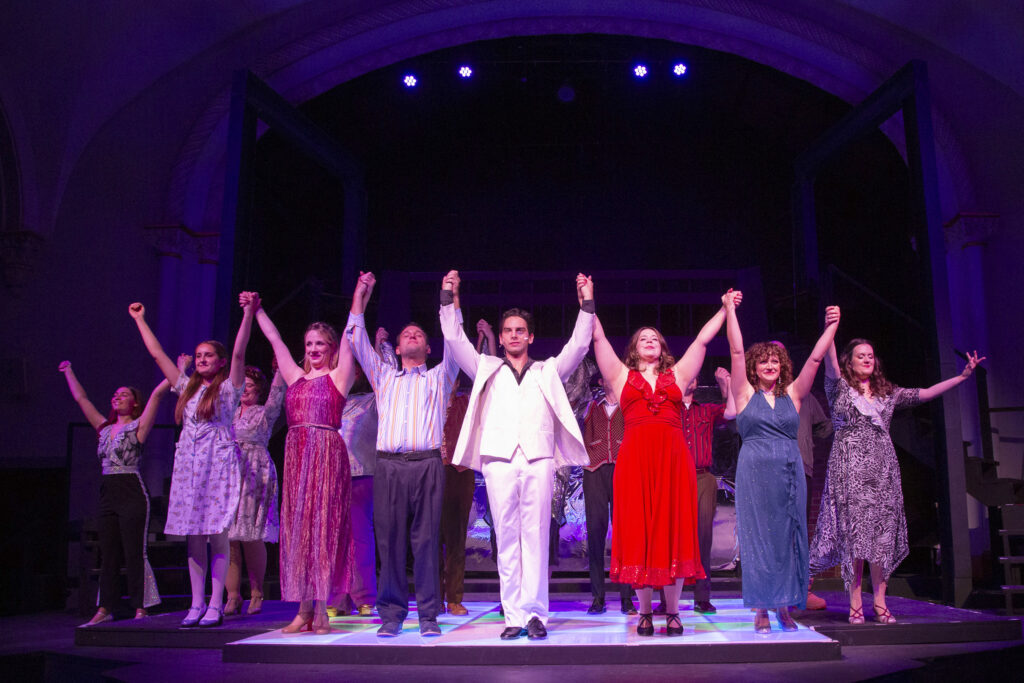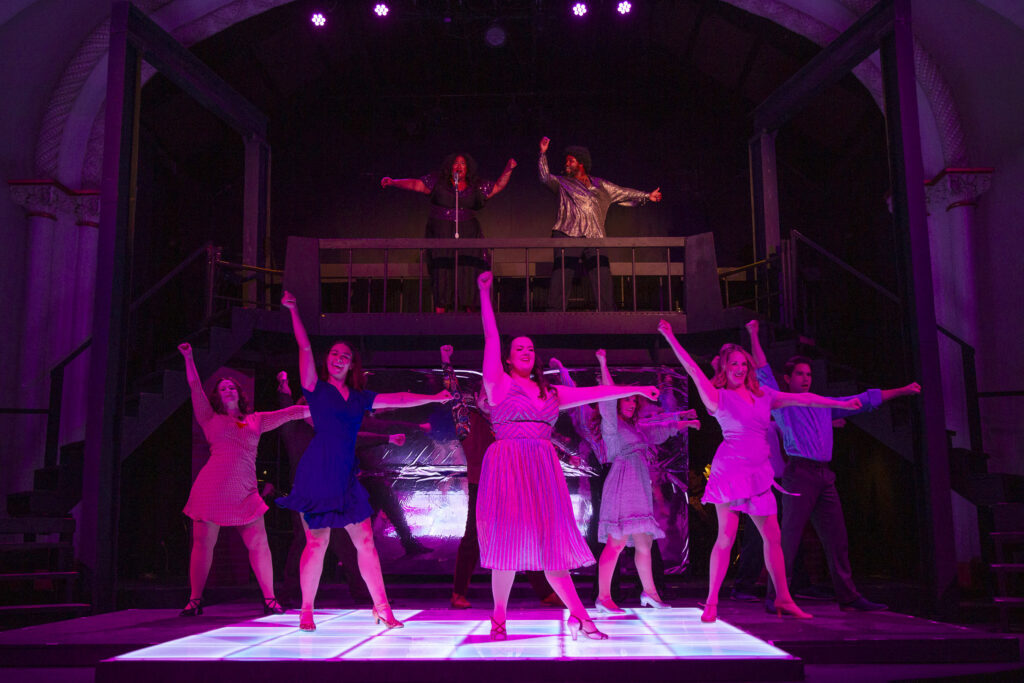By Lynn Venhaus
If your family is friends of Bill W., you can relate to the messy Morans in Colin McLaughlin’s humorous original play, “Pride and Joy.”
However, no matter what level of experience you have with a family of strong personalities who eagerly share their judgmental opinions, you may recognize common traits inherent to those folks related to each other in the Midnight Company world premiere.
Like so many others, they don’t really seem to be connected at times but are inextricably linked as more layers are peeled off. Hence, the similarities to typical American middle-class parental units with idiosyncrasies (don’t we all?).
St. Louis playwright McLaughlin takes a light-hearted look at the emotional and argumentative Morans, who are focused on putting the fun in dysfunctional. A top-flight ensemble takes off with the homegrown material and runs at breakneck speed with it.
Think of it in the same vein as a very special episode of a family sitcom popular in the ‘70s and ‘80s, before Dr. Phil’s “How’s that workin’ for ya?” and Dr. Drew’s Celebrity Rehab.
Director Carl Overly Jr. has cleverly framed the presentation like a television program, complete with TV theme songs playing before the show starts, With such a spry cast, he deftly sets the scene and conveys a lived-in atmosphere easily.
The youngest daughter Sam has invited the family over to her cramped apartment for an intervention, but she is not yet there when they arrive, wondering who the person in need of one is. Is it the dad, who seems to be an imbiber where it may impede his life? Is it the pot-smoking daughter Maggie?
To their surprise, it is their hostess, Sam. She has harbored this secret, and has announced she is sober for three weeks, and is working on the Alcoholics Anonymous program. All worth learning about and supporting.
In this role, newcomer Sarah Lantsberger is endearing as anxious Sam tries to maintain order, but her family isn’t good at following directions. Loud and opinionated, they make it more about themselves. Whose intervention is this, exactly?
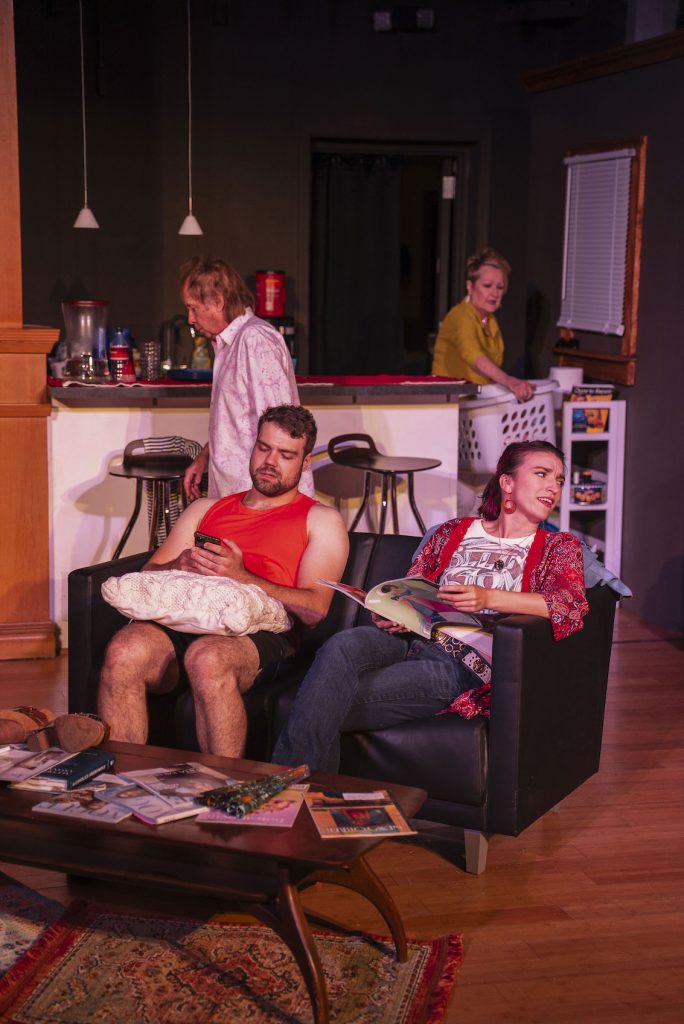
Sharp, smart performers who are renowned for crafting authentic characters appear to have a personal history with others from the start. Mom Mary Margaret is Lavonne Byers, one of the true legends of local theater and three-time St. Louis Theater Circle winner for lead performances.
She rarely does comedy but is a master at timing and is always present in every role. You know who this mom is immediately. And of course, she is scurrying around Sam’s apartment, picking up laundry and tidying up.
She and Joe Hanrahan, who plays the rumpled, grouchy, defensive dad Mike, have worked together before, so they are comfortable in a cramped space trying to dispense wisdom to their strong-willed brood.
Hanrahan, the artistic director of The Midnight Company, has always been open to collaborating with a gifted mix of young performers, and engages well with fearless artists, often associated with SATE, ERA, and the St. Louis Fringe Festival.
Oldest daughter Maggie, a ‘type’ of new-age pot-smoker prone to pontificating, is played by seasoned veteran Alicen Moser, another flexible performer. With her family, Maggie is a tad prickly and guarded, but you sense she could contribute more to the mental health goals if applied.
Jayson Heil once again demonstrates his versatility as the jerky, self-centered brother Jay, quick to criticize others and be a disagreeable sort. You get the feeling he didn’t play well with others as a child, let alone his sisters.
Heil, recently seen in “Cabaret,” “First Date” and winner of the St. Louis Theater Circle Award for “All My Sons,” all at New Jewish, is a casual cross between a know-it-all and a slacker as Jay, forced to be somewhere he’d rather not and loathe to confront family memories.

With all their nutty qualities and hang-ups, you can tell there is fertile ground for the characters to dig into, especially in a 12-step program. McLaughlin’s dialogue allows them to convey a shorthand with each other. And the performers are quick verbally and physically to further color the family interactions.
As people familiar with dime-store psychology frequently do, they all talk in self-help books’ psychobabble. Mom is religious, using her faith when it’s convenient while the rest of the family dismisses her outspoken reverence for the son of God.
So, is there a point besides shining a light on a quirky family who needs to break some patterns and establish healthier practices? Hopefully, the intention is to share the universality of family enablers, personal struggles leading to self-medication, self-absorbed people having a change of heart and showing they care for each other when you don’t think they are capable of it?
And not lose sight of that handy mechanism, humor. While some of the characters exhibit traits common in a family with substance abuse issues, a few moments of levity don’t seem to fit as family members deal with their own issues and how it relates to the family dysfunctional dynamic.
So, little digs here and there are just their way of accepting – or not – their habits and excuses. They have some encouraging breakthroughs instead of denial, which leads to a sense of relief that there is hope here.
Yet, there are a few actions that negate that (Maggie’s weed consumption acceptance, dad retrieving a hidden flask…is this a joke? Has nothing changed?). Leave it at hopeful, not thinking “well, maybe not…”
This is a very personal, heartfelt show that means a lot to the playwright, director, cast and crew. It’s obvious in the work that was put into it, and the satisfaction in having it ring true to patrons.
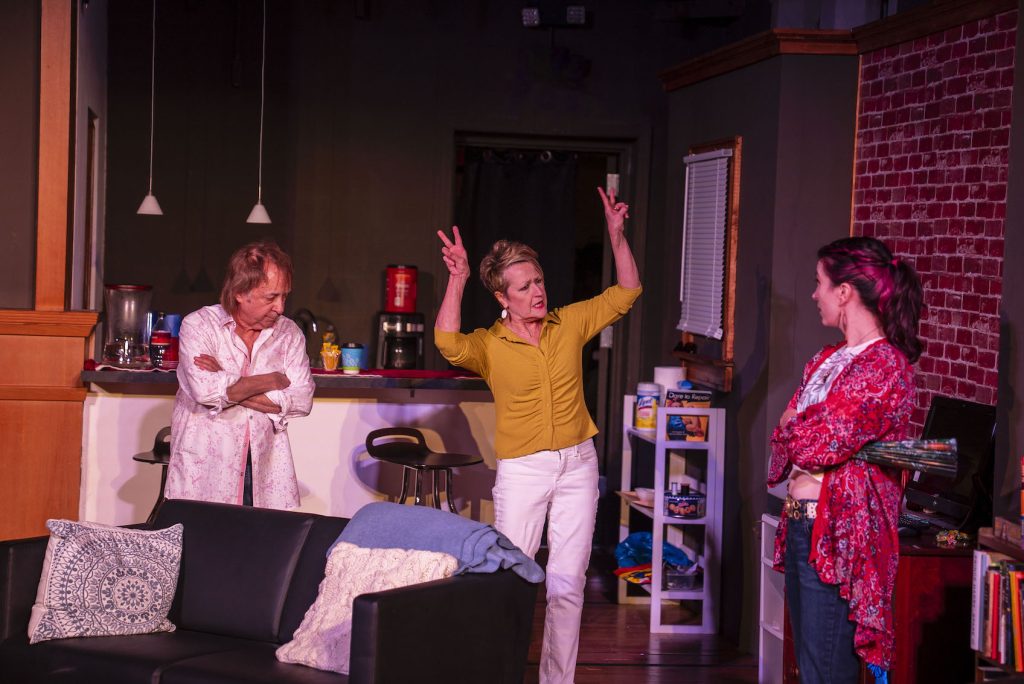
Chuck Winning’s set is a cozy blend of form and function, rendering a young woman’s first apartment, and utilizing the Chapel’s performance space well, while Tony Anselmo’s lighting design suits the material well. Costume designer Liz Henning’s casual attire simply shows each character’s personality.
Art that can entertain, amuse and call people to action is joyous to behold. One doesn’t have to be preachy or melodramatic to get points across. And that’s the beauty of connecting through live theater
The fact that we can all sit in a darkened theater and laugh at the foibles we see in ourselves, and how we each can change the things we can is a powerful message.
Therefore, any opportunity to provide some helpful tools is always welcome (just as triggering messages are).
In that spirit, I would be remiss, after years of advocacy, personal tragedies, a long list of documented dire consequences for generations of alcohol and substance abuse, and much therapy for the remaining family members, not to mention that there is a genetic component that factors in understanding, communication and progress.
Public service announcement: St Louis Alcoholics Anonymous https://aastl.org/ and St Louis Al-Anon: https://www.stl-al-anon.org/
No one is ever alone.
“God, grant me the serenity to accept the things I cannot change, the courage to change the things I can, and the wisdom to know the difference.” – Serenity Prayer

The Midnight Company presents the world premiere production of Colin McLaughlin’s “Pride and Joy” July 10 through July 26. Thursdays, Fridays and Saturdays at 7:30 p.m., and Sundays, July 13 and 20, at 3 p.m. at The Chapel, 6238 Alexander Drive. For more information: midnightcompany.com
.

Lynn (Zipfel) Venhaus has had a continuous byline in St. Louis metro region publications since 1978. She writes features and news for Belleville News-Democrat and contributes to St. Louis magazine and other publications.
She is a Rotten Tomatoes-approved film critic, currently reviews films for Webster-Kirkwood Times and KTRS Radio, covers entertainment for PopLifeSTL.com and co-hosts podcast PopLifeSTL.com…Presents.
She is a member of Critics Choice Association, where she serves on the women’s and marketing committees; Alliance of Women Film Journalists; and on the board of the St. Louis Film Critics Association. She is a founding and board member of the St. Louis Theater Circle.
She is retired from teaching journalism/media as an adjunct college instructor.

